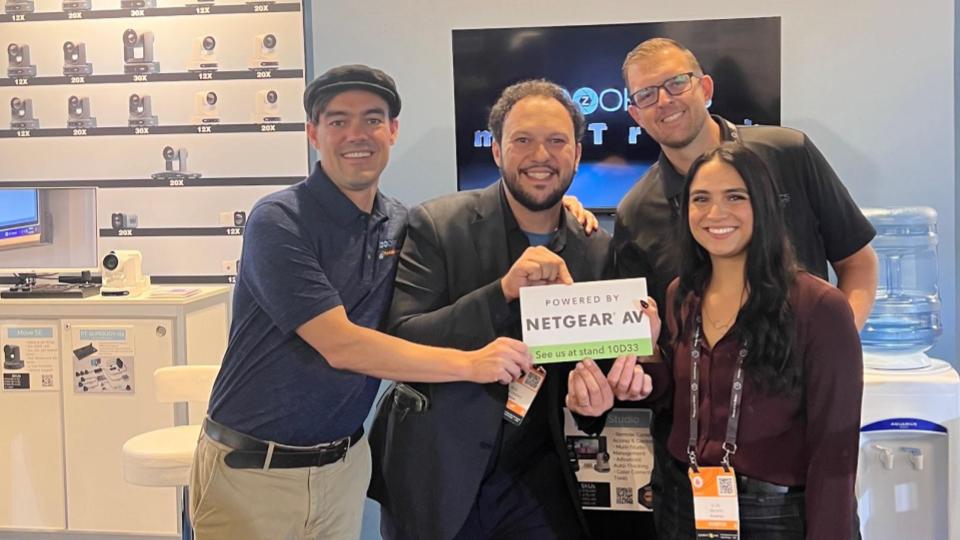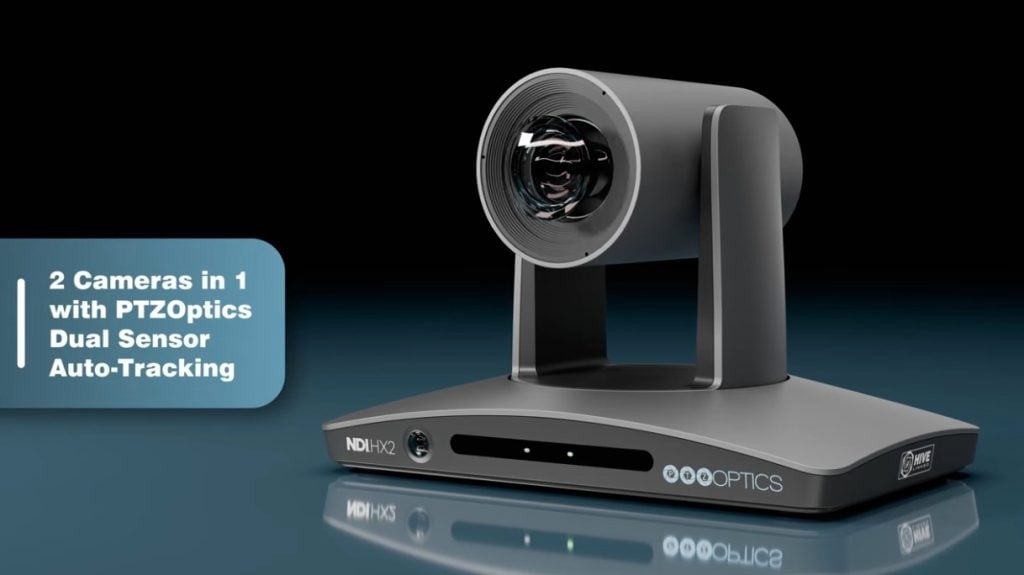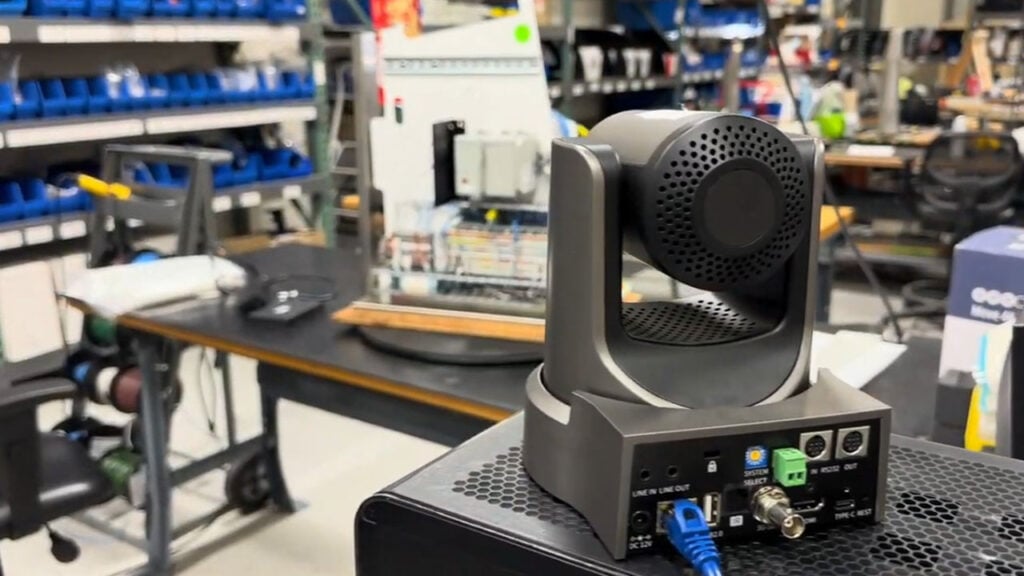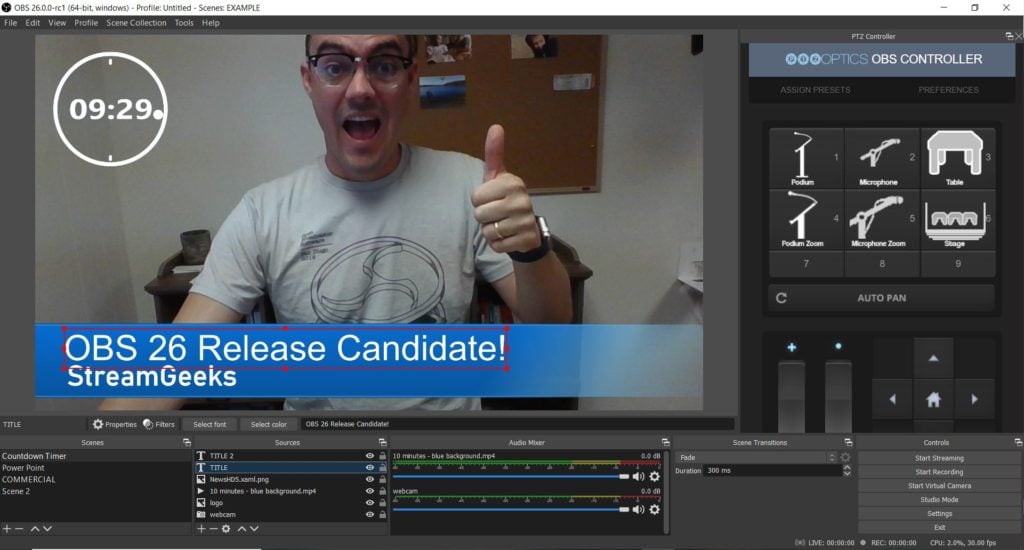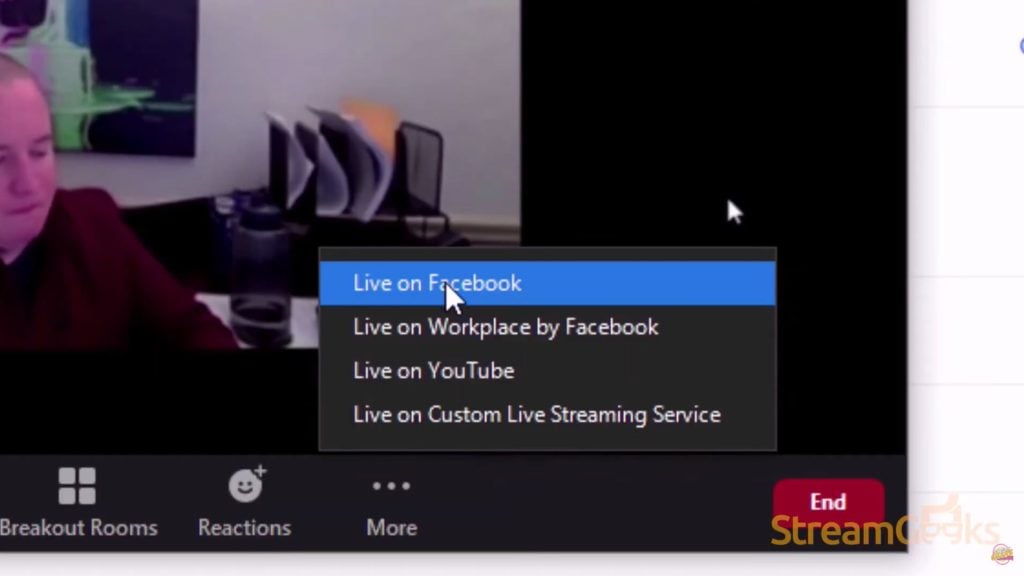What is OBS? (Open Broadcaster Software)
Written by Paul Richards on August 28, 2020
What does OBS Stand For
OBS stands for Open Broadcaster Software, a free, open source live video production software that’s supported by a large community of developers from around the world.
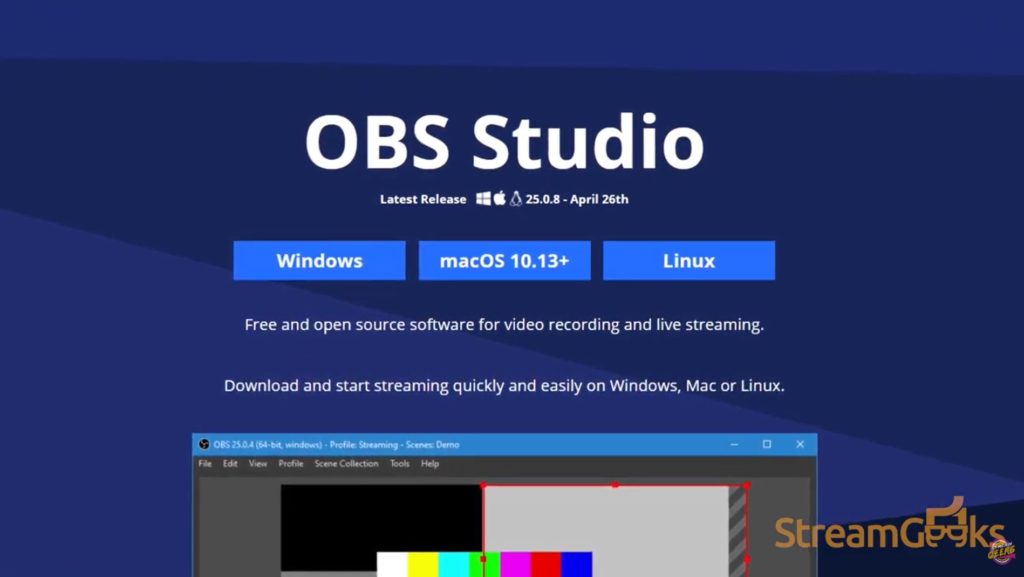
What is OBS used for?
OBS can be used for live video production, live streaming and video recording. When you first download and install OBS, a setup wizard will ask you if you would like to optimize the software for recording or live streaming because it has the ability to mix together many different audio visual sources into a live video production environment. OBS also supports many plugins which can extend its functionality to include features such as NDI support, VST plugins and stream deck controls.
Where can you download OBS?
You can download OBS for free at OBSProject.com. It’s available for Windows, Mac and Linux computer systems. At OBSProject.com you can also read the blog where you can learn great tips for using OBS. OBSProject.com includes helpful guides in the help section and a user support forum where you can post questions.
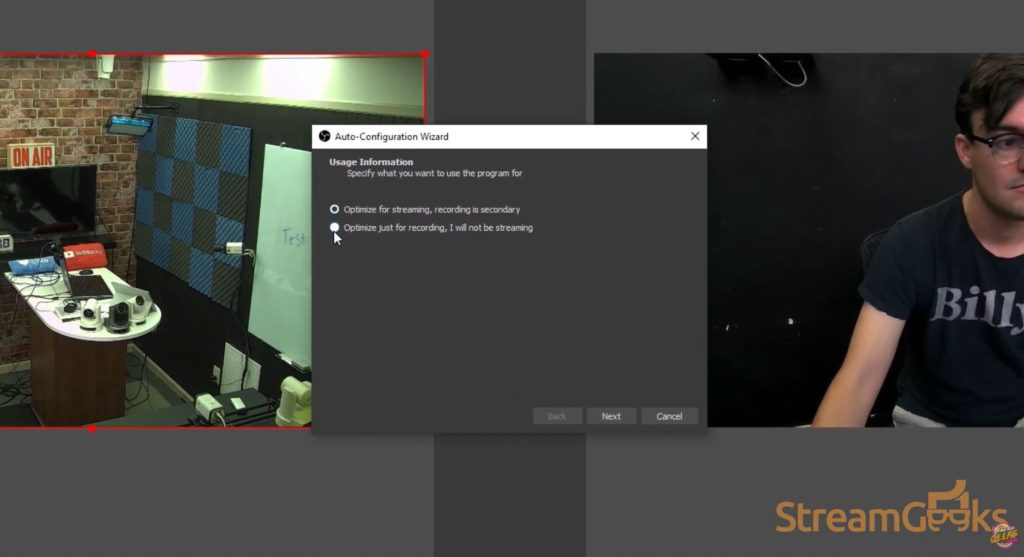
What is an OBS Plugin?
OBS plugins are used to extend the functionality of OBS by adding custom code written to do specific tasks. The most popular OBS plugin adds support for NDI, which is an IP video production protocol. Another popular plugin is called VirtualCam, which allows you to take any video inside of OBS and connect it to another camera via a virtual webcam source. This is great for pumping video from OBS into applications like Zoom. Other popular plugins include a remote control for OBS which provide an IP server to control OBS remotely and the PTZOptics OBS plugin which allows you to control PTZ cameras using OBS.
How can I add cameras and microphones to OBS?
OBS organizes all audio and video sources into scenes. In this way, you can create custom scenes with a variety of layouts to display all of your audio visual sources. Start by selecting a scene to put your video or audio sources into. Then click the plus button in the sources to select a media type. Select the type of audio or video source you would like to add into OBS. Next, you can give these sources a name. You may be asked to adjust some source properties before adding the source into your production.
Additional audio sources can be added to OBS in the settings area under the audio tab.
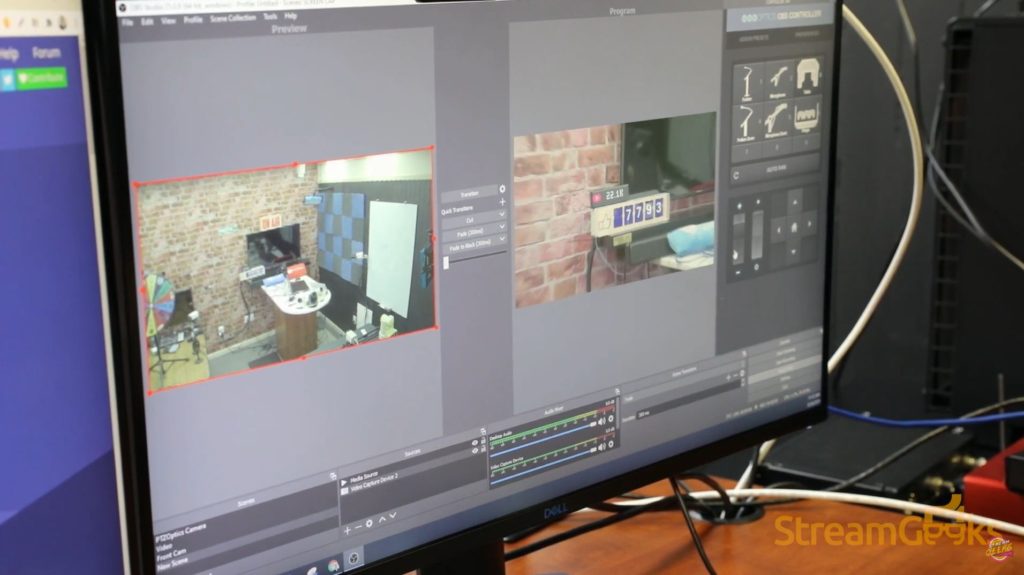
How to record a video with OBS?
Once your OBS system is set up you can record videos with OBS using the Start Recording button in the lower right hand corner. You can monitor your video in the main OBS window and you can monitor the audio using the audio mixer levels. You can configure the video recording settings and recording location in the settings area inside of the output tab. The video bitrate is used to set the video quality of your recording; by default, this is set to 2500 kbps but you may want to increase this number to 10,000 Kbps in order to increase your video recording quality. You can also choose a recording format and recording folder to store your videos in this area.
How can I live stream with OBS?
Once your OBS system is set up, you can use the “Start Streaming” button to stream video from OBS. You can configure the stream destination in the settings area inside of the Stream tab. Services such as Twitch, YouTube and Facebook can all be connected to using your accounts login information. You can also click the “custom” button to enter a custom server and stream key to live stream to. Once you have configured the streaming destination settings, OBS will live stream to this destination when the start streaming button is clicked.
How can I learn more about OBS?
The StreamGeeks offer an Unofficial Guide to Open Broadcaster Book via PDF on the StreamGeeks.us homepage. The book is also available in paperback on Amazon.com. Finally, there is a complete online course that goes with the book you can take on Udemy. The links will all be in the video description below
Also, we now have a Basics of Live Streaming guide you download to get up to speed on all of the latest in live streaming technology. Download that guide at StreamGeeks.us/Basics. Finally, let us know what you want to learn about in the comments below. We are expanding our back to basics video catalog and your idea could be our next project. Enjoy!
More on Basics of Live Streaming
- What do I need to live stream? Here.
- How to live stream to YouTube Here.
- How to make more engaging video content Here.
- What is the best camera for live streaming? Explained Here.
- How to live stream to Facebook? Here
- How to add graphics into your live stream Here
- How to live stream a Zoom meeting? Here
- What is OBS (Open Broadcaster Software)? Here
- What is a PTZ Camera? Here
- What is an SDI Camera? Here
- What is an NDI Camera? Here
- What cables do I need to live stream? Here
- What type of computer do I need to live stream? Here
- What is SRT? Here
- What is bandwidth? Here
Check out our other articles about Open Broadcaster Software below:
- Updated - How to connect OBS and Zoom with VoiceMeeter and Headphone Monitoring - here.
- Learn how to use OBS for remote production here.
- How to connect OBS with Zoom, here
- OBS vs vMix a complete review here.
- How to use Zoom for Church Meetings and Worship here.
- Here are the top 10 OBS features you need to know about
- Getting dropped frames in OBS. Here are some new feature to help with that.
- Take a look at OBS 24 and all the new feature here.
- Increase your productivity with OBS and learn how to use hotkeys here
- Learn how to setup animated stinger transitions in OBS here
- Learn how to install the NDI plugin for OBS (and why you should) here
- Learn more about the latest OBS user interface (UPDATED for 2019) here
- Make your audio in OBS sound great with these VST 2 plugins here
- Learn how to fix the most common OBS issues! Audio and Video Sync! here
- Learn how to use OBS 20+ here
- Learn how to use NDI Cameras with OBS here
- Learn how to use the OBS Multiview here
- Learn OBS quickly with our ZERO to SIXTY tutorial video here
- Learn more about OBS settings and optimizing your settings for live streaming here
- Learn how to record videos using OBS here
- New OBS 24 feature allows broadcasters the ability to pause and restart video recordings. Learn more here.
- Learn how to add live annotations over your OBS productions here
- Learn how to add a webcam and set up a picture in picture scene inside OBS here
- Learn how to crop and rotate inputs inside OBS here
- Learn how to use color correction tools and LUTs here
- Learn the best way to connect OBS and Zoom here
- Learn how to connect OBS and Teams here
- Learn how to use countdown timers in Teams here
- Learn where OBS recordings are saved here
- Learn how to live stream to YouTube and Facebook with OBS for free here
- Learn about OBS 27's new features here
